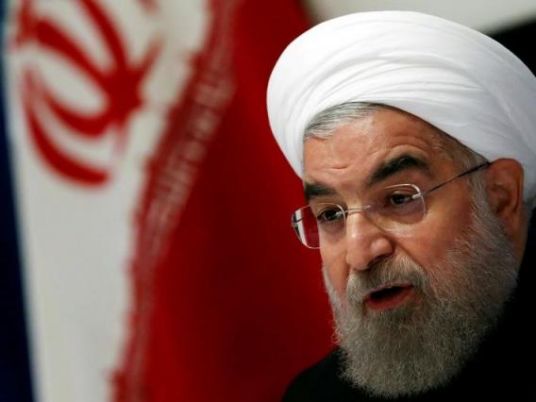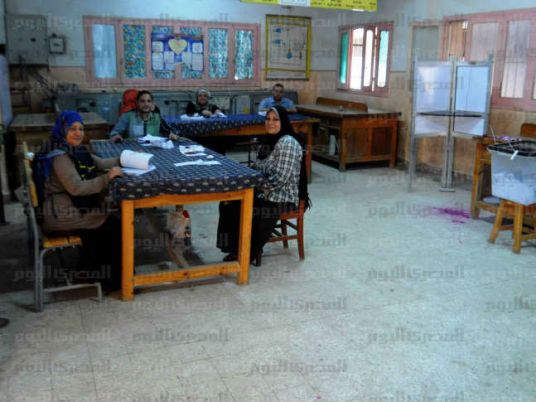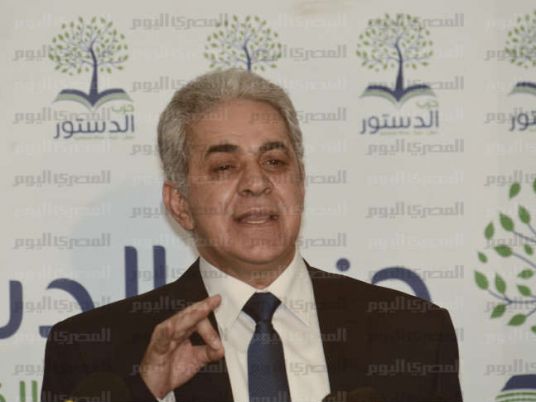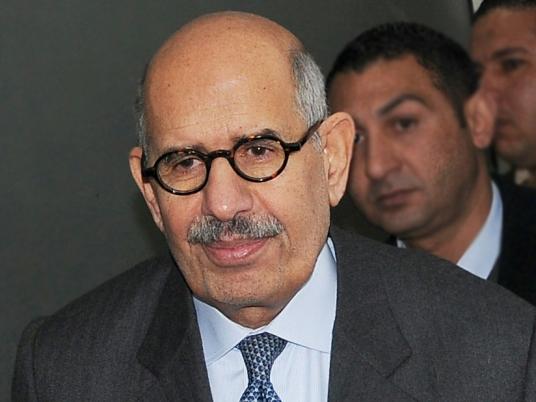The centrist Adl Party will send “thousands” of activists campaigning door-to-door as it prepares to compete in the parliamentary elections alone, according to party spokesperson Nora Soliman.
An electoral bloc set up by the Adl Party, dubbed the Third Way, was abandoned after talks last week with the Awareness Party failed to reach an agreement on combined electoral lists, leaving the bloc with only one member.
The Adl Party refused to join the Democratic Alliance, led by the Muslim Brotherhood’s Freedom and Justice Party, or the Egyptian Bloc, led by staunch liberals, saying the electoral coalitions had become too ideologically polarized.
“We never felt that we fit into either of these blocs,” said Soliman. “We felt the blocs had closed in on themselves.”
The refusal to join another bloc means the party fielded candidates in 17 governorates on its own list.
Soliman refused on Monday to reveal the number of candidates it would run in the elections, but said that each candidate had been “handpicked and vetted from among our members.”
“We don’t want to play a numbers game with the big guns,” she said.
The party is moving away from its strong focus on community development projects. Many of the party’s activists have worked in charities and development organizations, and for months the party has been sending out mobile health units, holding cheap clothing sales, and cleaning streets in a bid to raise awareness of the party.
“Our immediate reaction was what we have known here: the patronage system,” said Soliman. “We sort of fell into that, because it was all we knew.”
It was also part of the party’s unique focus on social transformation. Some of the party’s members view Adl as a vehicle to encourage systemic changes in Egyptian society and redefine the relationship between the state and its citizens.
Omar Bekdesh, who is responsible for vetting the party’s candidates, looked for evidence of this attitude in potential candidates. “I expect them to give me a new project that will change the way people think. It's not about giving people food or money. We need to change this ideology,” he said.
As elections approach, the Adl Party is transforming itself into a disciplined political force, drawing down its community projects and narrowing its campaign strategy.
On Sunday, Jihan Shoukry, who organizes community events for the party in Cairo, said they had begun concentrating projects in districts where they would have the strongest electoral impact. “Instead of working in all places, now we are focusing on places with candidates,” she said.
At the party’s offices in Garden City, Soliman laid out an ambitious policy agenda that included sweeping reforms to the education curriculum and the wage structure in the private sector, and the decentralization of the country’s police.
“Our role is policy. Our role is fighting for people's rights,” she said.
Soliman expects the party to win a good number of seats, but acknowledges that their expectations may not be set as high as big-ticket parties like the Muslim Brotherhood.
“What's good for us may not be enough for others,” she said. “A good number of seats is enough to allow us a voice.”
She is encouraged by the country’s voting system, which will spread a district’s seats out among several lists and prevent dominant parties from gaining all of the seats in a district.
“We don't have to get a huge number of votes to get one or two members from a district in parliament,” she said.
The party plans to target communities in each district that it believes are neglected by other parties and avoid those areas which already show strong support for another parties.
But it is not running any paid ads, citing a lack of funds, and it remains unclear how much widespread support the party will be able to muster before the first round of elections in about a month.
Since its founding, Adl has claimed to be non-ideological, and party leaders have insisted that Egyptians want a centrist party that rises above partisan battles.
“Identity doesn't mean much here,” Soliman said on Monday. “It's a sponge looking for tangible answers.”
She took issue with a recent poll from the Al-Ahram Center for Political and Strategic Studies that showed the Brotherhood's party and the Wafd Party held a strong lead over other parties among the fewer than 50 per cent of voters who had made their decision already.
At an event in Ghamra, Cairo two weeks ago, Ahmed Sakr, Adl’s candidate in the Cairo constituency of Qasr al-Nil, deflected concerns that Egyptians would vote along ideological lines.
“No one can claim they know who people will vote for,” he said.




